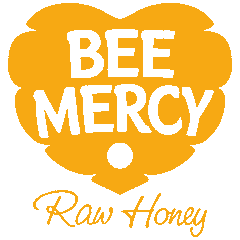The 'Essence of Preparation' - Inside a Winter Hive
Sep 15, 2016
Winter...the season of cold weather, less daylight, the common cold and rain. What a wonderful time. But one positive thing in the modern age is that in most cases, we do not have to consider food supply. We can purchase almost all the same foods in winter as we can in the summer. Long gone are the days of having to store up food in order to survive and long gone are the days of having to store up wood to keep the fire burning for warmth. The advent of winter has become far less perilous for us modern humans and we have almost become disconnected from the trials of seasonal change.
For the honeybee these winter months are a matter of life and death. These are the months that all the hard work throughout the rest of the year is measured. Throughout the summer months the hive has been relentless in it's activities. Hundreds of thousands of miles travelled, hundreds of thousands of deaths and births, a great multitude of flowers and crops pollinated, gallons of water collected and kilo's of honey produced. Ultimately all this activity is in preparation for winter. A time when all things die and they are left huddled together in darkness using their movement to keep warm. There is one goal over the winter months....to take care of the queen. If the queen dies, then their community will be no more.
The bees will start heading back to the hive when the temperature begins to drop below 10 degrees Celsius and the weather starts to become cooler. When this mass event starts to take place the bees will gather in the central area of the hive and form what is known as a 'winter cluster'. At the center of this bundle of mercy is the queen.
The bees keep themselves warm by the worker bees constantly vibrating and fluttering their tiny wings in a continuous motion. The energy created by this is enough to keep the inside of the cluster warm. The airflow also helps to expel carbon dioxide and moisture.
The fuel for all this movement is their winter honey stores. An average colony will need about 15-30 kilograms of honey to survive on but this does depend on many factors such as location, floral abundance and seasonal changes. This is the part that is problematic for the bees. If they do not have enough winter storage they will die and many keepers top their hives up with organic sugar mixture in order to keep them alive. This is what we call 'necessary sugar feeding' and is only done when the seasonal foliage is limited. This is opposite to 'unnecessary sugar feeding' which is done throughout the year in order to produce more honey for profit.
The most amazing thing about the winter cluster is the way that it functions. With the queen in the center of the cluster the worker bees will rotate from the outside to the inside of the cluster to ensure that no bee will become too cold. The colder the weather outside the more compact the cluster will become. On warmer days some of the bees will break off from the cluster briefly to remove body waste and other debris. All of this is still done while regulating the temperature and ensuring that all the hive continues to run at an optimal rate. Remember, this is also done in complete darkness so the bees have to rely on their astonishing senses to decide what process should take place. .
The 'winter cluster' is one of the simplest, most reliable winter furnaces in the natural world.
The honey bees wonderful display of preparation is also present in the way in which honey helps us humans. Raw honey not only gives you the things your body needs like enzymes, it also helps your body regulate the use of such enzymes thus improving enzyme function. A steady diet of raw honey could give your body a good fighting chance to ward off any common winter illnesses. We are not saying you won't become ill over winter, but if you do your body could have the tools to fight off the illness at a quicker rate. Raw Honey is a wonderful substance that will help you be better prepared. It carries within it the 'Essence of Preparation'
'Be like the Bee'


